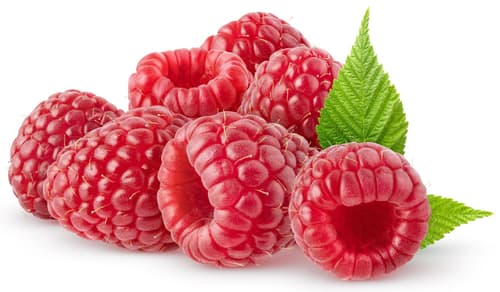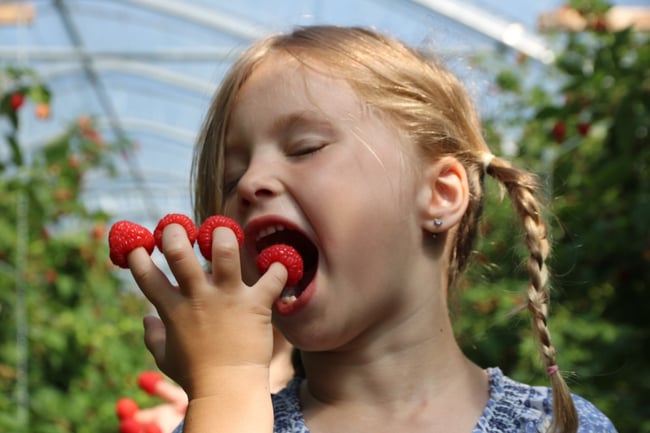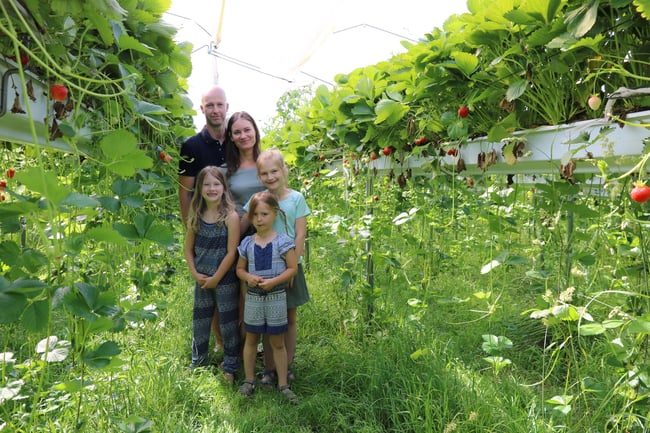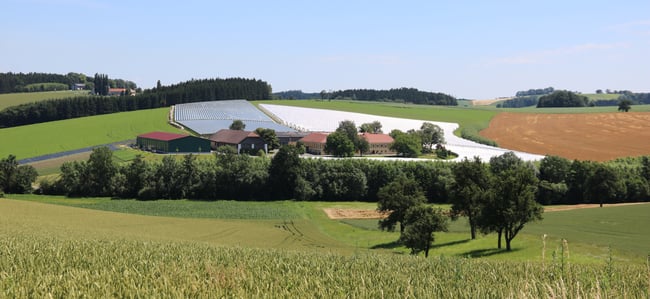
We source locally for the freshest groceries you can trust.
- Description
- Composition
- Similar products
- More from this brand
- Recipes
The wonderfully juicy and sweet raspberries grow on thorny semi-shrubs up to 2 m high. Botanically speaking, raspberries are aggregate fruits, i.e. several small, hairy drupes sit on a receptacle from which they easily detach during ripening. Our garden raspberry reaches a diameter of about 2 cm, while the wild form is only 0.5-1 cm. Most varieties of the round and oblong raspberry are of an intense red colour. Their aroma is unique among domestic fruit species.
Origin
The natural distribution area of the raspberry is vast. It grows wild in central and northern Europe, in Asia and in north-eastern North America. It is cultivated commercially almost everywhere it is widespread. The raspberry season runs from June to September.
Tips
The raspberry is perishable. It is therefore not advisable to store this soft fruit for a long time. However, it is very suitable for freezing.
Preparation
Raspberries are either eaten raw or processed immediately. This delicious fruit is used in cold dishes, fruit salads, ice cream, pudding, red fruit jelly, cakes, jam, rum pots, etc.

About the producer
Our family business is located in the heart of the Mostviertel. As an innovative young farmer, Rudolf Halbmayr brought the idea of a "berry world" to Wolfsbach as early as 1979.

Since then, everything on our farm has revolved around the sweet, red fruit. The valuable knowledge is passed on from generation to generation and we are very enthusiastic about the further development of berry fruit cultivation. In the meantime, we cultivate strawberries, raspberries, blueberries and asparagus. These are also refined into tasteful products.
We strive to produce tasty, ripe, high-quality fruit and vegetables. Sustainability and resource-saving, organic cultivation are very important to us. By using beneficial insects, creating flower strips, ongoing training, international knowledge exchange and a lot of manual work, we want to meet these demands.

For many years we have also been cultivating our strawberries in foil tunnels. These enable early, regional fruits of the best quality to be harvested.
Fruit and vegetables grown locally do not need long transport routes and can therefore be harvested ripe and marketed fresh. Thanks to our "protected" cultivation, in which our sensitive plants are spared from wind and heavy rain or even hail, we can reduce the use of pesticides to a minimum. For years we have also been working in parallel with beneficial insects for the biological control of aphids or strawberry mites. As a result, in recent years we have been able to observe a natural settlement of bumblebees and sand bees as well as other "helpers" and pollinators. The plastic films we use and which are no longer usable are of course recycled. When watering, we rely on economical drip irrigation with collected rainwater.

Storage recommendation
Berries have a short shelf life. They stay fresh the longest if they are stored constantly cool and dry, ideally unwashed in a shallow container in the refrigerator. It is important to make sure that they do not lie in their own juice or in condensation water, as this promotes mould formation.
